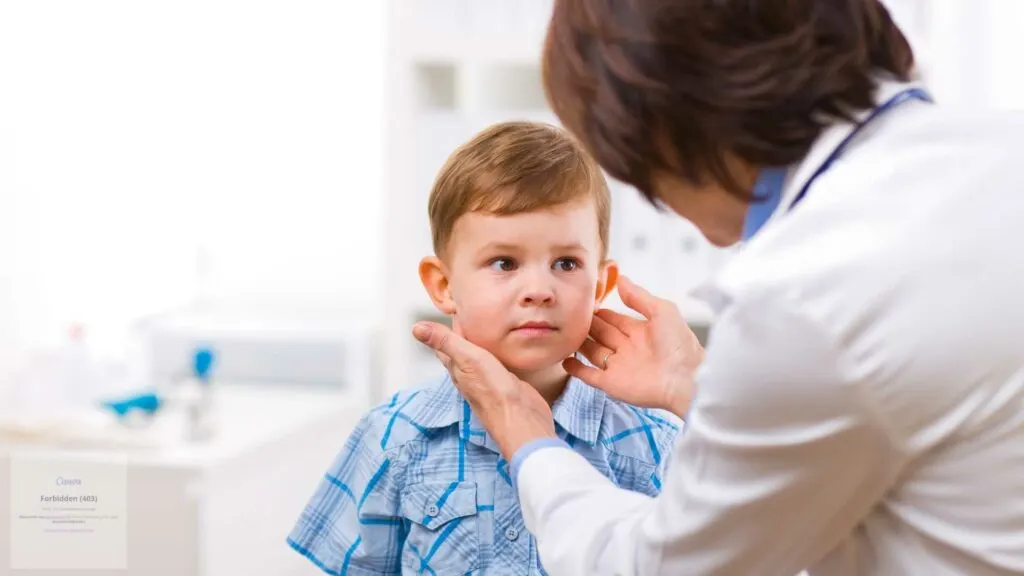As a parent, there’s nothing more stressful than seeing your child unwell. Of course, you want the best care for them, but figuring out when a trip to the pediatrician, urgent care, or emergency room (ER) is necessary can be quite confusing.
Urgent care centers offer a middle ground for situations that require prompt medical attention but aren’t life-threatening. Below, let’s delve into when urgent care is the right choice for your child and what to expect during your visit.

When Urgent Care Steps In
Your child wakes up with a fever. Their usual playful energy is replaced by a troubling listlessness. Upon smelling trouble, you know it’s important to get them checked. The problem is that your pediatrician’s appointment isn’t for days. How about a trip to the ER? Well, it seems like overkill. This is where urgent care steps in, acting as a bridge between your child’s regular doctor and the emergency room.
- Same-Day Evaluation: Unlike waiting for your pediatrician’s next opening, urgent care provides a same-day assessment for sudden symptoms like fever, vomiting, or earaches. This allows for early diagnosis and treatment, potentially preventing complications from delayed care and offering you peace of mind.
- Equipped for Minor Injuries: Beyond bumps and scrapes, urgent care centers are often equipped to handle a wider range of childhood injuries. These could include sprains, minor fractures (without needing complex procedures), and even treatment for animal bites (depending on the facility).
- Relief from Worsening Illness: While urgent care isn’t a substitute for your pediatrician for chronic conditions, it can be a lifesaver when a common childhood illness like a cold or flu takes a turn for the worse. They can address worsening symptoms like severe congestion, persistent cough, or high fever, potentially offering relief medications and helping to diagnose the cause.
- Addressing Allergic Reactions: Mild allergic reactions, like hives or swelling without trouble breathing, can be effectively managed at urgent care. This saves you from an ER visit, plus it provides prompt relief for your child’s discomfort.
- Urinary Tract Infection (UTI) Diagnosis and Treatment: Urgent care centers can perform tests to diagnose a UTI and prescribe antibiotics if necessary, getting your child feeling better faster.

It can’t be denied that urgent care centers like Just 4 Kids play a vital role in ensuring your child receives timely medical attention when your pediatrician is unavailable and the ER isn’t needed at all. They provide convenience, expertise, and peace of mind during non-emergency childhood health situations.
Remember, Urgent Care Isn’t for Everything
While urgent care is a convenient option for many situations, it’s crucial to recognize when the ER is a better choice. Here are some red flags that warrant an immediate trip to the ER:

- Severe Injuries: Deep cuts, broken bones with protruding bone, head injuries, or any injury that causes significant pain or deformity requires emergency care.
- High Fever in Infants: A fever of 100.4°F (38°C) or higher in a child under 2 months old is a medical emergency.
- Trouble Breathing: Rapid breathing, wheezing, or any difficulty getting air requires immediate medical attention.
- Severe Dehydration: Signs like lethargy, dry mouth, sunken eyes, and not urinating for several hours indicate severe dehydration, which needs ER intervention.
- Loss of Consciousness or Seizures: Any loss of consciousness or uncontrolled seizures is a life-threatening emergency.
When in doubt, always err on the side of caution and seek emergency medical attention.
What to Expect at Urgent Care
Urgent care centers are designed for efficiency, aiming to get your child seen quickly and effectively. Here’s a breakdown of what to expect during your visit:
1. Registration
Be prepared! Bring your child’s insurance card and a list of their current medications. At the front desk, provide your child’s medical history, including any allergies or past illnesses. This information helps the staff understand your child’s unique needs and expedite the process.
2. Triage
Here, the nurse will take your child’s vitals, which include their temperature, heart rate, respiration rate, and blood pressure. Also, be prepared to answer questions about your child’s symptoms and how long they’ve been experiencing them. Based on the information at hand, the nurse will then determine the urgency of your child’s condition.
3. Examination
Next, a doctor or physician assistant will examine your child. This may involve listening to their lungs and heart, checking their ears, throat, and abdomen, and looking for any visible signs of injury or illness. The healthcare provider might also ask your child to perform simple tasks to assess their strength, coordination, or reflexes.
4. Diagnostics (if needed)
Sometimes, the doctor might need a little detective work to figure out exactly what’s going on with your child. This might involve some painless tests like X-rays for a suspected broken bone, a quick urine test to check for a UTI, or a swab of the throat to see if it’s strep throat. The good news is that most urgent care centers have these tools right on-site, so you won’t have to wait long to get answers!
5. Treatment and Education

Based on the diagnosis, the doctor will develop a treatment plan for your child. This may involve medication (prescribed or dispensed on-site), wound care, or instructions for home care. Moreover, the doctor will take the time to explain the treatment plan to you in detail and answer any questions you may have.
6. Follow-up Care
Now, depending on what’s going on with your child, the doctor might suggest a follow-up visit with your pediatrician so they can keep an eye on things. You can also expect to receive specific instructions to help your child feel better at home. These might include keeping track of their temperature or giving them medicine at certain times. Every situation is different, so the doctor will tailor their advice to your child’s needs.
Just remember this is just a general idea, and the specifics of your visit might vary depending on your child and the urgent care center.
Tips for a Smooth Urgent Care Visit
Taking a sick child to urgent care isn’t the easiest task to carry out. But fret not. With a little preparation, you can navigate the visit smoothly and ensure your child receives the best possible care. Here are some key tips to remember:
Gather Information Beforehand: Before heading out, gather essential documents. Your child’s insurance card. A list of their current medications. If you have any relevant medical records like recent test results, a shot record, or a referral note from your pediatrician, bring those along, too. With all this information readily available, it’d be much easier for the staff to process your visit. This also provides the doctor with a clearer picture of your child’s overall health.
Dress for Comfort and Ease: Opt for comfortable, loose-fitting clothing for your child to make it easier for the doctor to examine them thoroughly. For younger children, consider clothes that allow easy access to the arms, legs, and abdomen. Go for joggers and loose shirts that if you want to streamline the examination and prevent unnecessary stress for your child.
Pack for the Wait: Urgent care visits can sometimes involve waiting, especially during peak hours. Pack some snacks and drinks to keep your child’s energy levels up and prevent meltdowns from hunger or thirst. Bringing along some age-appropriate entertainment, like books, games, or a tablet loaded with movies or shows, can help keep them occupied during any wait time.
Most important of all, don’t hesitate to ask questions about the diagnosis, treatment plan, or any concerns you may have. The doctor is there to address your child’s needs, and a well-informed parent is a better advocate for their health. Take notes if it helps you remember the information later.
Urgent Care for Kids: A Parent’s Guide
Navigating a child’s illness can be overwhelming. Urgent care centers are a godsend in such situations by providing same-day evaluation and treatment for non-life-threatening situations. And by understanding what to expect during your visit and coming prepared, a smooth experience is definitely coming your way. This means your child can get back on the road to recovery as quickly as possible.

Jessi is the creative mind behind The Coffee Mom, a popular blog that combines parenting advice, travel tips, and a love for all things Disney. As a trusted Disney influencer and passionate storyteller, Jessi’s authentic insights and relatable content resonate with readers worldwide.
